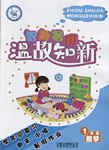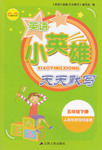题目内容
My grandmother’s hobby is________ playing Mahjong ________ watching TV. It's square dancing.
A.not only, but also B.neither, nor C.both and D.either, or
练习册系列答案
 智趣暑假温故知新系列答案
智趣暑假温故知新系列答案 英语小英雄天天默写系列答案
英语小英雄天天默写系列答案 暑假作业安徽少年儿童出版社系列答案
暑假作业安徽少年儿童出版社系列答案
相关题目
假如你是李华,将在今年暑假到美国参加为期2个月的Study Tour活动。美方提供了两个家庭供你选择居住。请阅读以下信息,写一封电子邮件回复。
The Smith Family ●a middle?aged couple ●a junior school boy ●a house,a little far from New York ●a garden ●$230 per month | The Brown Family ●an old couple ●no children ●two dogs ●a flat,in the center of New York ●Wi?Fi ●$350 per month |
要求:
1.写内容必须包括某一家的所有信息及你选择的理由;
2.数要求80左右,开头和结尾已给出,不计入总词数;
3.语意通顺,意思连贯,条理清楚,书写规范;
4.文中不得出现真实的姓名、校名等信息。



